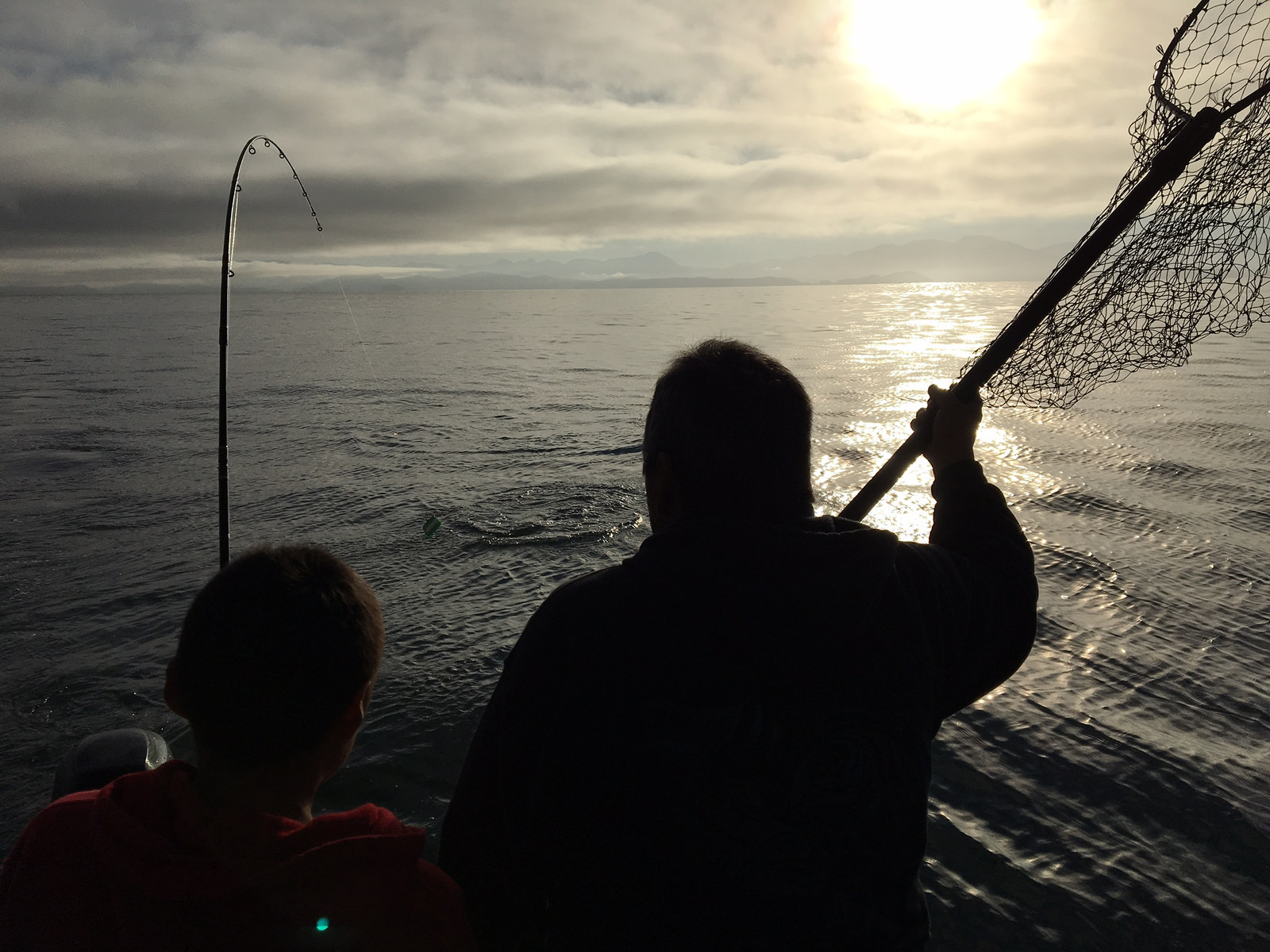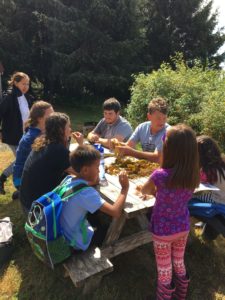
23 Jan Communities Learn about Ocean Harvesting through Nuu-chah-nulth Values and Principles
Ocean foods have nourished and sustained Nuu-chah-nulth First Nations for millennia, yet today many challenges exist for those who want to access Nuu-chah-nulth foods and exercise their Aboriginal rights to those foods.
The traditional foods that our ancestors enjoyed remain a significant aspect of social and cultural events, yet often it’s only our Elders who are experts in how to harvest, prepare, and preserve these foods. Having the knowledge and skills to access good, healthy foods for ourselves and our families is an inherent right that should be encouraged at the community level.
This was part of the motivation behind three harvesting workshops organized and coordinated by Uu-a-thluk this past summer in the three regions (i.e., Southern Region: China Creek and Broken Group Islands, Central Region: Toquaht Bay, and Northern Region: Nootka Sound and Yuquot). Thanks to a Special Projects grant from the Nuu-chah-nulth Employment and Training Program (NETP), Uu-a-thluk was able to launch this pilot project to better equip Nuu-chah-nulth for aquatic-related employment opportunities.
“Our hope is that we will make these workshops a yearly event and collaborate with Nations who would like to train members on seafood harvesting, preparation, and preservation,” said Michelle Colyn, Uu-a-thluk Capacity Building Coordinator. “This project will allow us to continue to assert our rights for present and future generations to develop fisheries-related opportunities in concert with Nuu-chah-nulth values and rights.”
Community members in the harvesting workshops learned a range of skills and knowledge such as modern ways of harvesting salmon, crab, prawn, groundfish, and kelp; how knowledge of harvesting ocean resources ties into careers in the fisheries and eco-tourism industries; handling, cleaning, filleting salmon, how to prepare kuutchis salmon (Nuu-chah-nulth salmon barbeque over fire), and preservation methods such as canning.

Figure 1: Northern Region Biologist Roger Dunlop leading a seaweed identification activity (harvesting workshop), Mowachaht/Muchalaht First Nation Science Camp
Participants in the Northern Region workshop canned bull kelp and made bull kelp salsa, while in the Central Region community members learned about the importance of the potlatch for Nuu-chah-nulth governance and for important events. This past summer while the workshop was taking place Toquaht community members were harvesting for a special memorial honouring Bert Mack (Deets–kee-sup), who served as Tyee Ha’wilth (Hereditary Chief) of Toquaht First Nation until 2009. Those taking part in this workshop also learned about how Nuu-chah-nulth would move through the seasons harvesting food during the 13 moons of the Nuu-chah-nulth calendar. Anii-tsa-chist (Larry Johnson), Toquaht fisher and President of the Nuu-chah-nulth Seafood Development Corporation spoke about the importance of being familiar with the “Seasonal Round” or Nuu-chah-nulth calendar.
“To truly get back to traditional foods it’s important to know why and when different foods are harvested. We’ve been removed from the fishing industry and the coastal way of life,” he said, adding that the residential schools and the shutting out of Nuu-chah-nulth from the commercial fishing industry have significantly contributed to this disconnection.
Defined by the principles of hišukiš c̓awaak meaning “everything is connected,” as Nuu-chah-nulth we understand our sacred duty to foster healthy relationships with the land, waters, plants, and animals that give us our food. With this comes the necessity to respond to our own requirements for safe, healthy cultural foods and the ability to make decisions over how much and what food we hunt, fish, gather, grow and eat to feed our communities. Field-based training opportunities like the harvesting workshops connect food sovereignty and food security with employment on the water, which is crucial to ensuring the long-term success of fisheries and fisheries related businesses. Engaging the next generation in this understanding often begins with something as simple as a first fishing lesson.
Anii-tsa-chist recalled the thrill of catching salmon on a rod for the first time and how he noticed this in the children who he taught to fish at the harvesting workshop in Toquaht Bay. “Adrenalin takes over and that excitement takes me right back to being a little boy and fishing stickleback in the rivers.” Although he added that this should be but one lesson of many. “Being a fisher isn’t something you learn from one course once a year. It’s a lifetime of things you pick up along the way.”
All information in this post provided by CCRN Researcher Dawn Foxcroft


